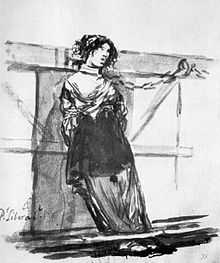Liberal
Liberal is a polysemic term, although always related to the concept of freedom, usually used in political or economic contexts, but it can also refer to another:
- It applies to the person who is open and tolerant to other people who need it and their opinions, who have free and unprejudiced customs and ideas and favors individual freedoms.
- The virtue of Liberality, give generously without expecting reward. In this sense, liberal is synonymous or adjective applied to a person and act generous, detached or altruistic, Inclined to give what he has and esteems.
- Inclined to freedom, tolerant, indulgent, acting liberally, generously.
- The vice of prodigality, liberality in excess. In this sense, liberal is synonymous with prodigal.
- Observe liberal, disappointment falling into disuse. He referred to doing things promptly; the same thing as those who are free from obstacles.
- In affective-sexual, adjective Liberal applies to uninhibited behavior, not conditioned by dominant sexual morals. It can have very different manifestations: the so-called free love (the term proper to anarchist ideology), the open couple, sexual promiscuity, sexual practices previously called perversions, etc.
In the corresponding entry of the Dictionary of use of Spanish (María Moliner) we find the following: “Liberal (from the lat. «liberälis»). (1)adj. and no. Applied to people for their political ideas, ideas, political parties and regimes, supporter of freedom. ¤ Supporter of tolerance. ¤ Supporter of the freedoms enjoyed by citizens in democratic regimes. ¤ Supporter of respect for private initiative, for example in economic matters. ¤ It applies to the regime or operation of any organization in which restrictions and impediments are reduced to a minimum, and to the people who practice it: 'A liberal import regime'. (2) It applies to the party that opposed the so-called "Carlist" in the Spanish civil wars called "Carlist wars", and to the people who followed it. Þ Cristino, foreigner. ¤ adj. Also, to the party that, in the regime of party rotation typical of the constitutional monarchy, opposed the so-called "conservative", and to the people addicted to it. (3) It applies to certain *professions that can be practiced in free competition, that is, they are not remunerated by the State but by the people who use the services; for example, medicine. (4) Tolerant of other people's ideas and customs: "He has a very liberal father." ¤ Very free in the way he thinks or acts; particularly in relation to sexual relations.
Politics
In politics, liberal is the supporter of freedom, whose doctrinal expression is political liberalism. The origin of this expression is the name given to themselves by the group of deputies of the Cortes of Cádiz who, although opposed to the Napoleonic invasion, were also opposed to the continuity of the Old Regime, and reflected their ideas in the drafting of the Spanish Constitution of 1812. The word liberal, typical of the Spanish language, passed into French, English and others, with this specific use.
Economy
Describes people whose ideology of political economy (economic liberalism) emphasizes economic freedom (the free market, free competition, private property, and private initiative or free enterprise) and considers beneficial to The community leaves each of the economic agents free to trade and produce from buying a place.
Liberal Professions and Liberal Arts
The liberal professions are those in which the worker is not an employee of a company, but establishes a commercial relationship directly with his client. This is the case of some doctors, lawyers, consultants, architects, etc.
The origin of this denomination, in the Middle Ages and the Old Regime, lies in the distinctive social consideration of these professions compared to the vile and mechanical trades. The liberal professions were liberated from manual labor; its exercise depended on the study and the academic norms of the medieval university. They also received the denomination of liberal arts, an area from which the so-called fine arts were also derived from the Renaissance; all of them distinguished from handicrafts.
Contenido relacionado
Night of the Pencils
Jose Toribio Merino
Black September (organization)
